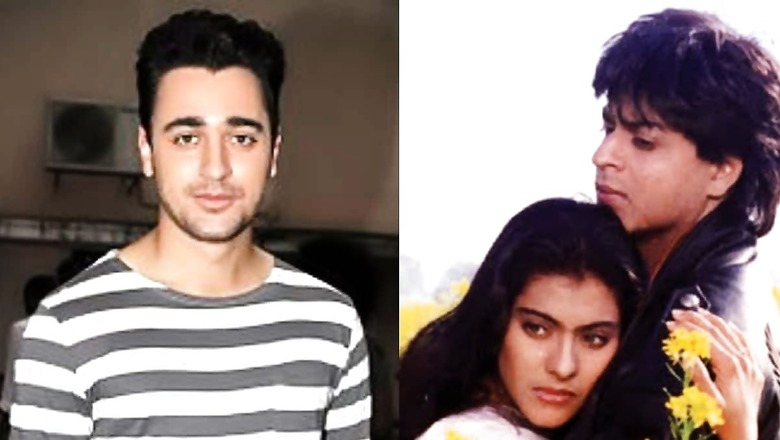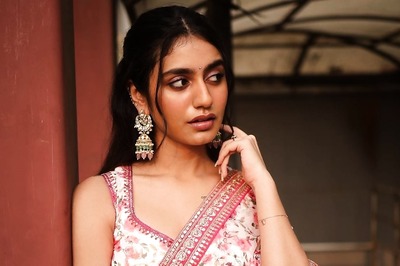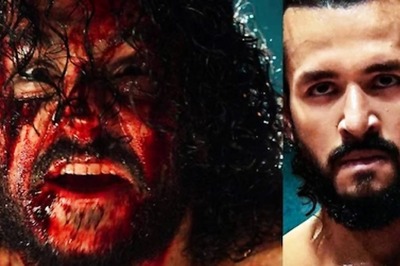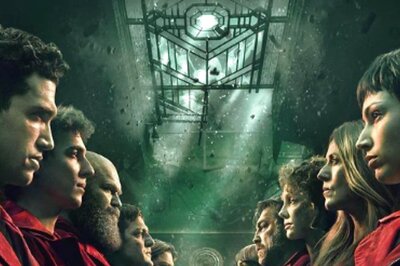
views
‘Dilwale Dulhania Le Jayenge’ marked a pivotal moment in Shah Rukh Khan’s career, and even after 30 years, it remains one of his most iconic films. In a recent interview, former actor Imran Khan shared his thoughts on what he considers “green flags in cinema,” citing Shah Rukh Khan’s portrayal of Raj in DDLJ as a prime example. He appreciated Raj’s character for embodying traditionally female roles and avoiding physical violence, setting him apart from typical male protagonists.
Speaking on the YouTube channel We Are Yuvaa, Imran explained, “His portrayal in DDLJ, where, in the second half of the film, he shows up at this girl’s house and he takes on this role that is the traditionally female role… he says I am helping with the shaadi, I’ll take mithai here and I’ll put decorations up over there and even at the end when it comes to physical conflict, he is not fighting the guys.”
In the film, Raj travels to Simran’s (Kajol) home, where she is preparing to marry someone else, and instead of using aggression, he wins over her family with kindness and patience. This approach starkly contrasts with Simran’s fiancé, Kuljeet, who embodies the alpha male stereotype and represents a red flag, planning to cheat on his future wife. Imran further noted, “He is like, I won’t, and the fact that at the end of the film, rather than taking the girl and running off, he says I will win the hearts of this entire family, one by one I will win their hearts. I found that to be refreshing and very moving and exciting when I first saw the film.”
‘Dilwale Dulhania Le Jayenge’ (DDLJ), released in 1995, is not just a film but a cultural phenomenon among the masses. Directed by Aditya Chopra in his directorial debut, DDLJ became a milestone in Bollywood, redefining the romantic drama genre and solidifying Shah Rukh Khan and Kajol as one of the most beloved on-screen couples.
The film follows the story of Raj Malhotra (Shah Rukh Khan) and Simran Singh (Kajol), two young Indians living in London. They meet during a month-long trip through Europe and, after a series of misadventures, fall in love. However, the twist comes when Simran, bound by her father’s promise, is set to marry another man in India. Determined to win her love honorably, Raj travels to India to convince Simran’s strict father, played by Amrish Puri, to allow them to marry.
DDLJ is celebrated for its portrayal of love that balances tradition and modernity. Raj’s character, who respects Simran’s family values while fighting for their love, resonated deeply with audiences. His refusal to elope with Simran and instead win over her family was seen as a refreshing change from the usual tropes of romantic films at the time.
The film’s impact is evident in its unprecedented success. It became the longest-running film in Indian cinema history, with a continuous run of over 25 years at Mumbai’s Maratha Mandir theater. DDLJ also played a crucial role in popularizing the concept of the “NRIs” (Non-Resident Indians) as a significant demographic in Bollywood, showcasing their struggles and connections with Indian traditions.
Beyond its commercial success, DDLJ’s influence on pop culture is profound. Dialogues like “Bade bade deshon mein aisi choti choti baatein hoti rehti hain” and songs like “Tujhe Dekha To” and “Mere Khwabon Mein” have become iconic, transcending generations. The film’s exploration of love, family, and cultural identity continues to resonate with audiences today, making it a timeless classic.




















Comments
0 comment